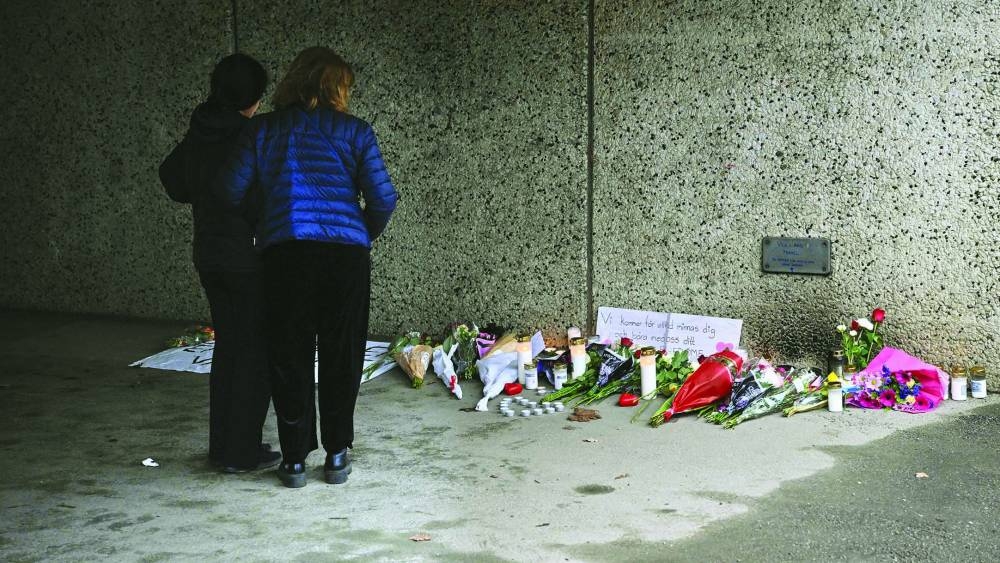Swedes reacted with shock and anger on Thursday after a father was gunned down in broad daylight in front of his son in a Stockholm suburb, amid media reports he confronted a gang of youths.
The Scandinavian country has seen a surge in violence in recent years as criminal gangs feud for control of drug markets, with bombings and shootings recorded weekly.
The gangs often recruit young teens to carry out the violence because they are not criminally liable, with some perpetrators as young as 12.
Swedish Prime Minister Ulf Kristersson and opposition leader Magdalena Andersson were both due to visit the Skarholmen suburb south of the capital in the evening.
The area has seen several shootings in recent months.
“The system-threatening crime that our country is now experiencing has brutal consequences for our entire free and open society,” Kristersson wrote in a post on Instagram on Thursday. “People with violent intent should not be allowed to intimidate honest citizens into silence.”
“The gangs, with their utter ruthlessness, will not stop until we have stopped them,” he said.
The 39-year-old father, identified in media reports only as Mikael, was shot in the head in front of his son early on Wednesday evening as they cycled to a swimming pool.
He died early on Thursday, according to police.
Several media outlets, including television chain TV4 and tabloids Expressen and Aftonbladet, said he was shot because he confronted the gang.
“He didn’t like injustice. It cost him his life,” his sister, who didn’t give her name, told Expressen. “He was sensitive, he didn’t like to read about all the shootings.”
No arrests have been made in connection with the killing.
According to police statistics, 363 shootings were reported last year with 53 fatalities, while a total of 149 bombings were recorded.
Wednesday’s shooting came as Sweden’s parliament adopted a new law giving police powers to establish zones where they can search people or their vehicles even if they are not suspected of specific crimes.
The new law will go into force on April 25.
The proposal has been controversial, with critics saying it runs counter to the rule of law and could lead to discrimination.

People stand at a makeshift memorial near the centre of Skaerholmen, south of Stockholm, where a father was shot dead in an underpass earlier this week.
